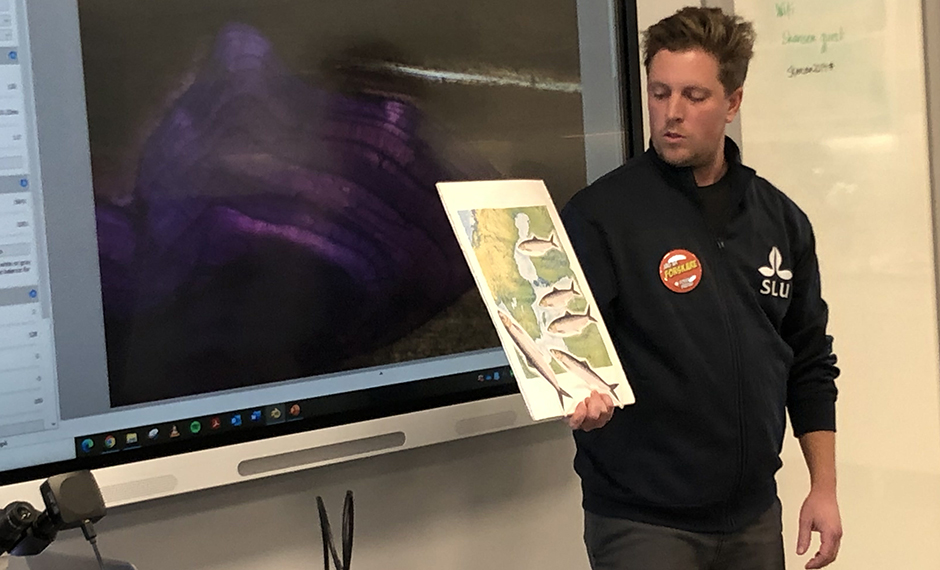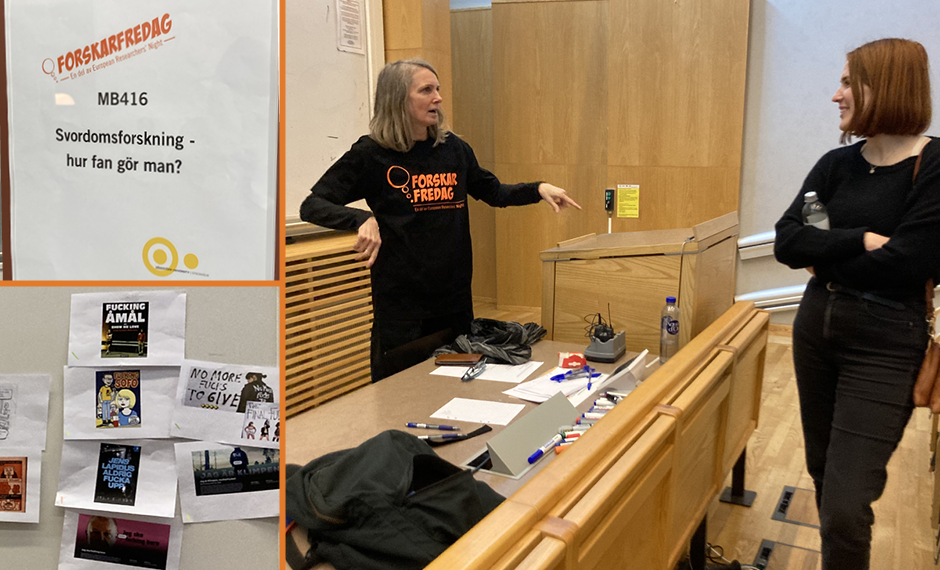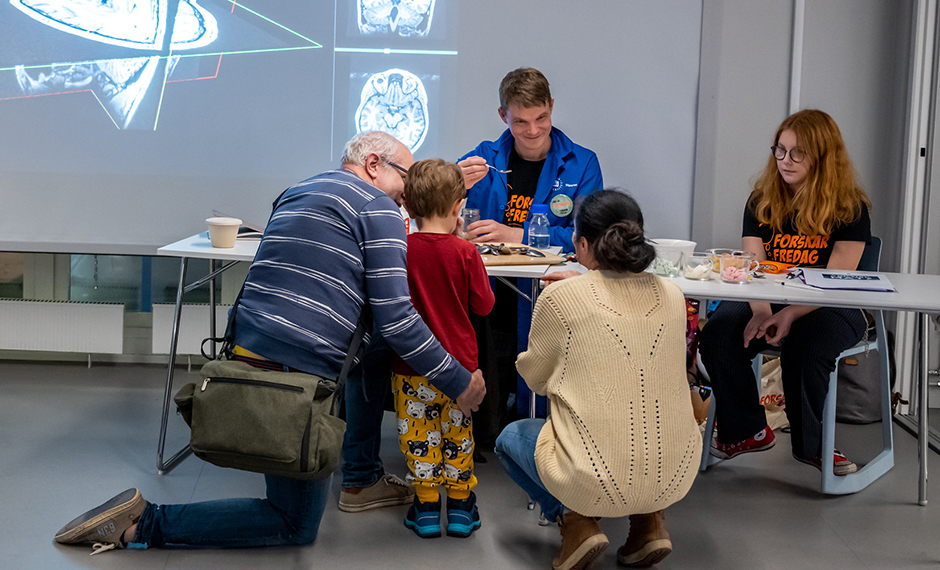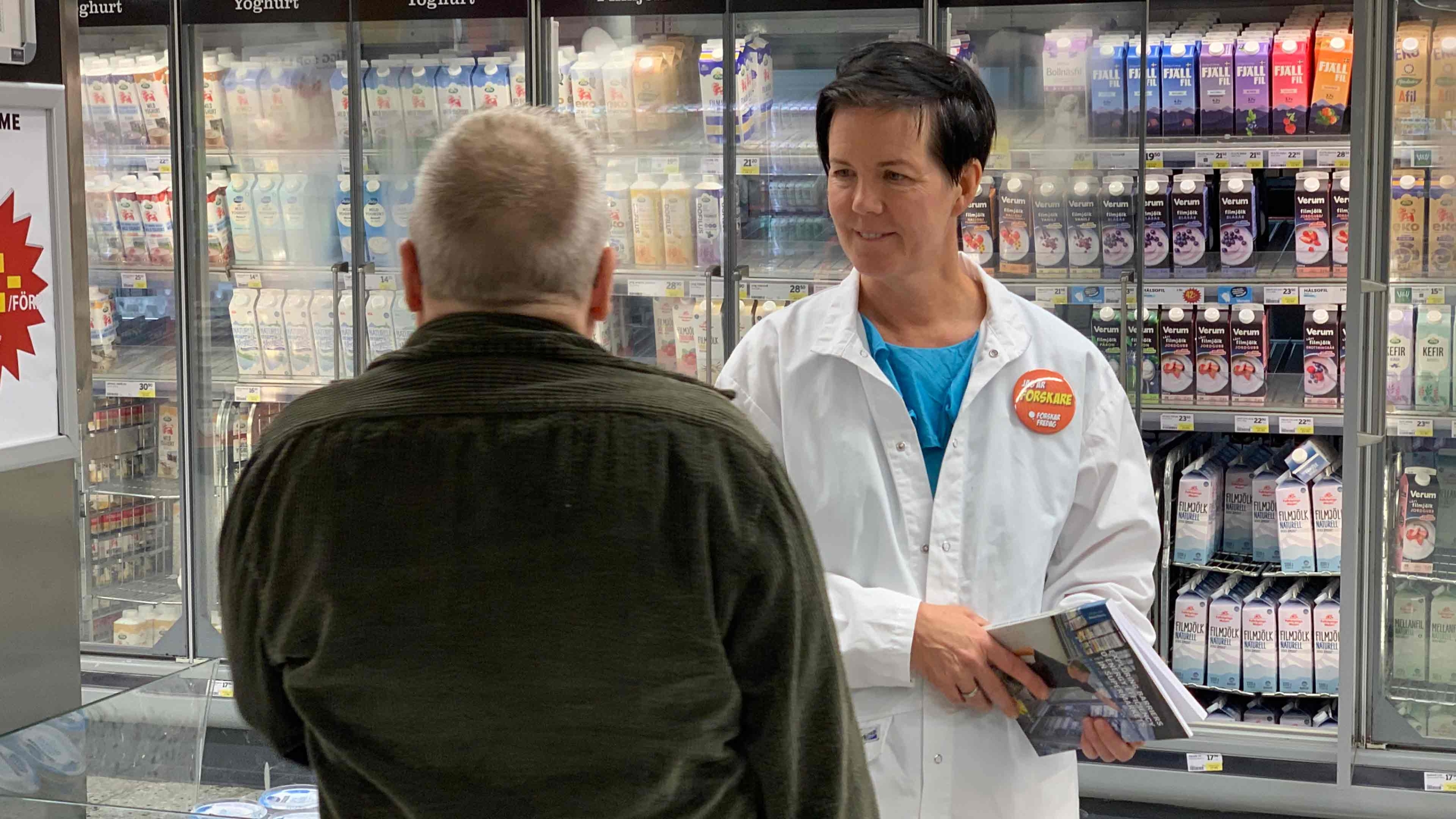Puzzles, poisons and profanities all featured in this year’s ForskarFredag, Sweden’s European Researchers’ Night. From Lund in the south to Luleå in the north, more than 120 activities took place across the whole of Sweden. All were designed to showcase what it is like to work as a researcher and how research contributes to creating a better and healthier world.
This year’s programme, which ran from 26 September to 1 October 2022, offered school pupils and members of the public a mixture of face-to-face activities in 26 Swedish towns and cities as well as opportunities to meet researchers online. On the Monday, for example, upper secondary pupils could talk online to environmental toxicology researcher Joëlle Rüegg from Uppsala University about poisons, chemicals and research methods to replace animal testing.
What place does literature have in a digital media world? Pupils who participated in ”The Wonderland Escape Room” were able to ponder this question while solving puzzles around the theme of Alice in Wonderland. The game has been designed by Maddalena Carfora, a PhD student in literature.
“The game only provides a few brief glimpses of the novel, but, just like Alice, the players are thrown into a world where they have no idea which rules are correct and which are built on puns and puzzles. It demonstrates the playful side of language, literature and the book that we don’t always acknowledge as easily in a written text,” explained Beate Schirrmacher from Linnaeus University.
On the Wednesday, visitors could learn about food production in Skellefteå and discuss biodiversity in Trollhättan. In Luleå, researcher Björn Lindqvist explained how autonomous robots can play a role in security, the emergency services as well as the hunt for life on other planets!

On the fourth day of the ForskarFredag festival, several school classes visited the Baltic Sea Science Centre in Stockholm, where they got to dive into research related to the Baltic Sea.
“I have learned about how research is undertaken, from start to finish, as well as about pain in fish,” wrote one pupil who participated in the activity.
On Thursday evening, anyone interested in environmental issues could immerse themselves online in the UN’s People’s Climate vote, the largest survey of public opinion on climate change ever conducted. The broadcast (in English) from Gothenburg’s Natural History Museum, during which researchers presented and dissected the statistics, is available to view online.
This year also saw a record number of schools book to ‘borrow a researcher’ to visit them either online or in the classroom. Researchers working in a diverse range of research areas met with around 160 classes throughout the week to talk about their path into the research profession and what they do during the day. The visits either took place online or in school, and were greatly appreciated by both the researchers and the schools they visited. One teacher who was participating for the second year in a row reported that several of the pupils who participated last year are interested in becoming researchers in the future.
During ForskarFredag, (Researchers’ Friday) itself, there was also a packed programme. Visitors could get involved in research in a grocery store in Borås, participate in a kite flying competition, attend a Science Slam in Lund, solve a museum mystery online, go on an interactive space trip, learn about computer gaming research and much, much more throughout the country.

At Södertörn University, an entire whiteboard was filled with profanities (swear words), when upper secondary school pupils had to practise identifying similarities and differences between expressions. Those who wanted to, could also contribute to a research project by submitting examples of five rude words that came to mind. “Congratulations, you have undertaken some research today!” announced Kristy Beers Fägersten, who researches swear words, at the end of the session.
In Eskilstuna, it was possible to watch and vote in one of the five regional heats of the Researchers’ Grand Prix, the science competition in which researchers have just four minutes in which to present their research.
“It was a little nerve-wracking, but above all a lot of fun, both to have the opportunity to present my research, and to hear what colleagues are working on, in an easily understandable way,” said Peter Backeman. He won with his presentation about a new way to test computer systems, and is one of six researchers competing in the national final on 1 December in Stockholm.
ForskarFredag is part of the European science festival European Researchers’ Night, which is held during the last week of September every year. The fact that researchers often collaborate internationally was highlighted in an online science café involving researchers from Ireland, Sweden and Malta. Among other things, they discussed how fiction about climate science can make the climate issue more accessible and how culture can be used to create completely new knowledge.
“Art does not differentiate between right and wrong and gives us space to fantasise and explore completely new solutions to problems,” said Margaret Jean Westby from the University of Malta.
In Umeå, the Friday ended with an evening event involving a teddy bear hospital, lots of experiments and an action-packed chemistry and physics show for all ages.

Festivities also continued on the Saturday, where it was possible, among other things, to programme Lego robots and meet Mathias Andersson, who researches school transportation, at the 2047 Science Center in Borlänge.
In total, around 28,000 people from more than half of Sweden’s municipalities participated in this year’s ForskarFredag – the country’s most widespread science festival.
“It’s brilliant that ForskarFredag is back in full swing after the pandemic and that so many people took the opportunity to discover that researchers are ordinary people with extraordinary jobs,” commented Julia Brink, Project Manager at VA (Public & Science), who is the national coordinator of ForskarFredag.

